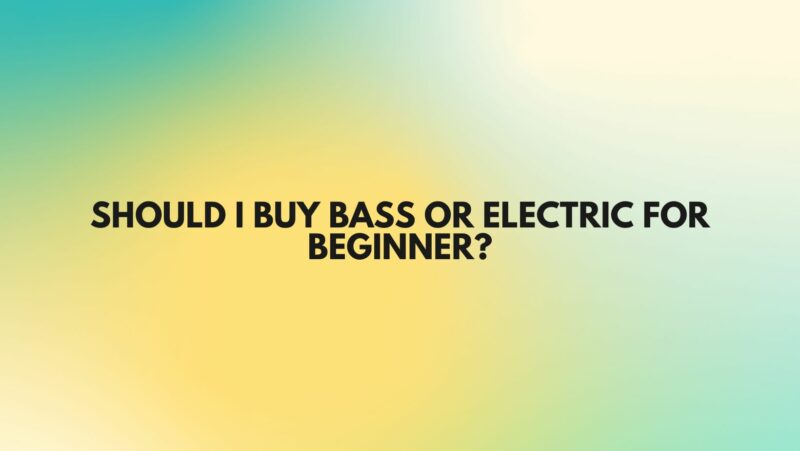Choosing the right musical instrument as a beginner can be a pivotal decision in your musical journey. If you’re interested in playing the bass, you may find yourself torn between two primary options: the electric bass guitar and the double bass (upright bass). Both instruments have their unique qualities, and your choice should align with your musical goals, preferences, and practical considerations. In this comprehensive article, we will explore the factors to consider when deciding whether to buy an electric bass or a double bass as a beginner.
Musical Style and Genre
Electric Bass Guitar:
- Ideal for contemporary genres like rock, funk, jazz, pop, and more.
- Known for its versatility and adaptability in various musical contexts.
- Offers a wide range of tonal possibilities through different playing techniques.
Double Bass:
- Traditionally associated with classical and jazz music.
- Well-suited for acoustic and unplugged settings.
- Can be used in a variety of genres, but more commonly found in specific styles.
Physical Considerations
Electric Bass Guitar:
- Smaller and more manageable in terms of size and weight.
- Easier to transport and carry around for gigs or practice sessions.
- Less physically demanding on your posture and back.
Double Bass:
- Considerably larger and heavier, standing around six feet tall.
- Requires proper posture and technique to avoid physical strain.
- May necessitate a dedicated space for storage.
Budget
Electric Bass Guitar:
- Generally more affordable, especially for entry-level instruments.
- Variety of options available at different price points.
- Accessories such as amplifiers and cables may add to the cost.
Double Bass:
- Typically more expensive, with higher upfront costs for both instrument and accessories.
- Maintenance and setup costs may also be higher.
- Consider whether you are willing to invest more in the long term.
Learning Curve
Electric Bass Guitar:
- Generally considered easier for beginners due to its smaller size and fretted fingerboard.
- Faster progress in terms of producing clear notes and basic techniques.
- Lower initial frustration level for beginners.
Double Bass:
- Can have a steeper learning curve, especially for beginners with no prior string instrument experience.
- Developing proper technique, finger strength, and intonation can take time.
- Bowing technique adds an additional layer of complexity.
Sound and Tone
Electric Bass Guitar:
- Known for its distinct and punchy electric sound.
- Offers a wide range of tonal possibilities with the use of amplifiers and effects.
- Well-suited for driving rhythms and solos.
Double Bass:
- Renowned for its warm, acoustic tones.
- Produces a rich and resonant sound that is characteristic of classical and jazz music.
- Typically not as loud as an electric bass guitar without amplification.
Ensemble Playing
Electric Bass Guitar:
- Easily integrated into bands and ensembles, including rock bands, jazz combos, and more.
- Commonly used as part of the rhythm section in various musical contexts.
- Ability to play with amplification makes it suitable for larger venues.
Double Bass:
- Well-suited for small jazz ensembles, classical orchestras, and acoustic settings.
- Acoustic projection may limit its use in louder or amplified settings.
- Larger size may pose logistical challenges in some group scenarios.
Personal Preferences
Ultimately, the choice between an electric bass guitar and a double bass as a beginner should align with your personal preferences and musical aspirations. Consider the genre of music you’re most interested in, your physical comfort with the instrument, your budget, and your willingness to invest time in learning. It’s also helpful to try out both instruments if possible and consult with music teachers or experienced bassists for guidance.
In conclusion, both the electric bass guitar and the double bass have their merits and unique characteristics. Your decision should reflect your musical goals and practical considerations. Remember that whichever bass you choose, dedication, practice, and a passion for music will be your greatest assets as you embark on your journey as a bassist.


